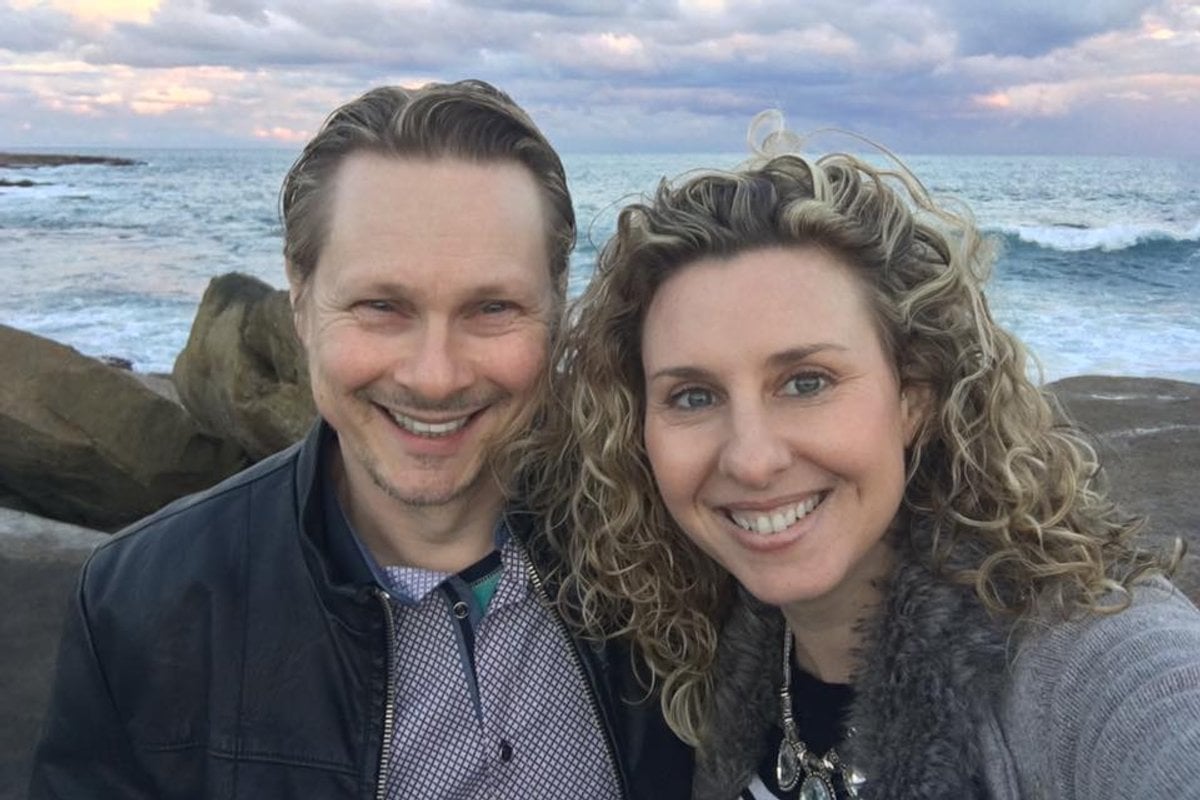
Elly Klein always assumed she’d end up building a relationship with someone who shared her religious beliefs - or lack thereof.
"I realised I was an atheist in high school," says Klein.
"And, despite having talked to lots of religious people over the years and been genuinely open to having my mind changed, it never has."
Watch: ADHD and Relationships. Post continues after the video.
Although she was raised Jewish, and has strong ties to Judaism culturally, religion itself is not a priority.
"I always assumed I’d end up with someone atheist, agnostic or not particularly religious. I didn’t grow up around a lot of Jewish people, so I didn’t expect to end up with someone Jewish."
Instead, she married David – a Baptist Christian, and as far as levels of devoutness go, Baptists are pretty high up there.
The pair met online in 2016, drawn to each other despite their religious beliefs being front and centre of their dating profiles.
"Despite not being a Christian, my dating profile really stood out to my husband, and he decided to contact me."
